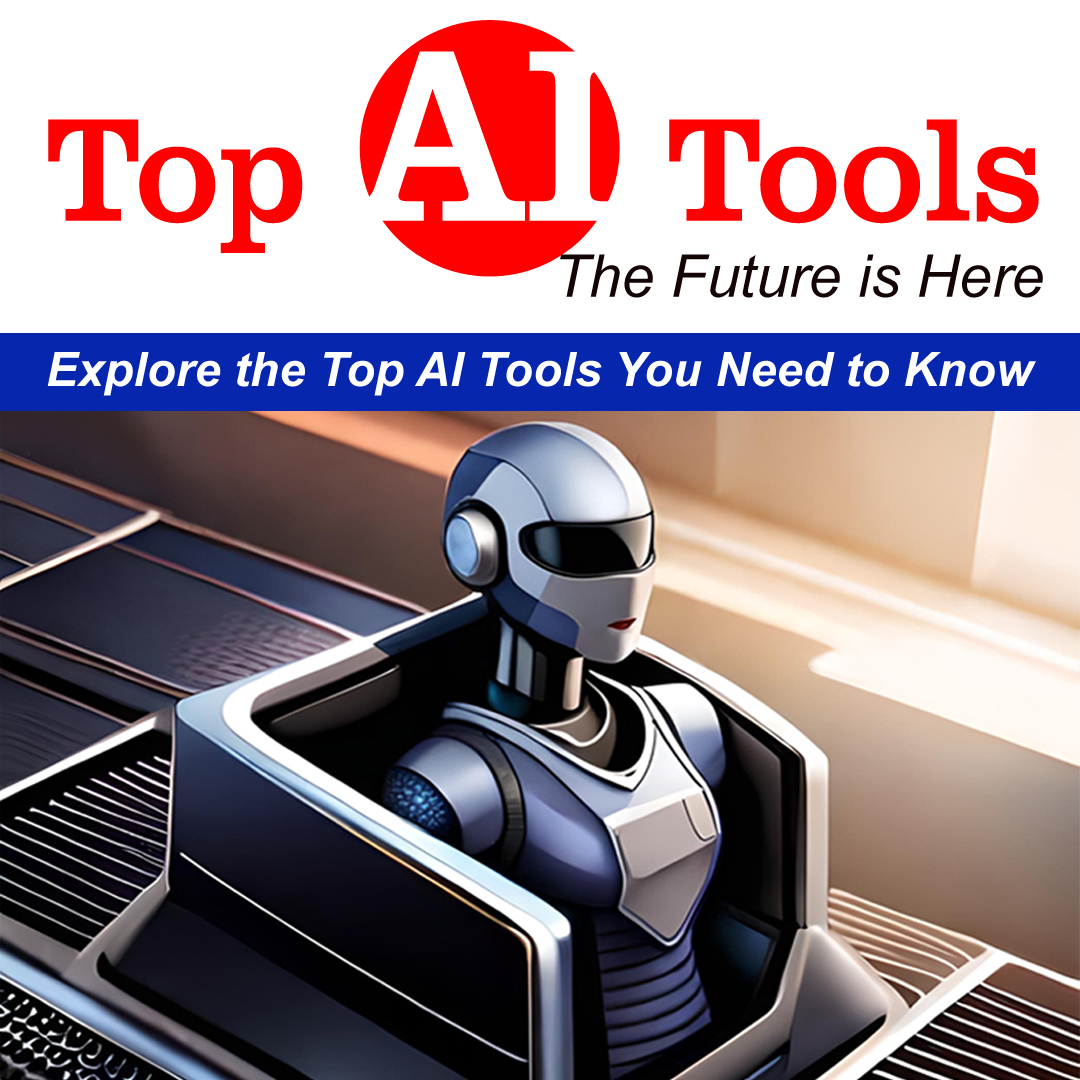Artificial Intelligence (AI Tools) has transformed various industries and is shaping the future in remarkable ways. From self-driving cars to virtual assistants, AI technology is revolutionizing how we live and work. In this article, we will explore the top AI tools that you need to know, and how they are transforming different sectors.
Explore the Top AI Tools
1. Introduction
AI refers to the simulation of human intelligence in machines that are capable of learning, reasoning, and problem-solving. These AI tools leverage data and algorithms to perform tasks that typically require human intelligence. Let’s dive into the top AI tools that are shaping the future.
2. Natural Language Processing (NLP) Tools
NLP tools enable computers to understand, interpret, and generate human language. They analyze text and speech, enabling applications like chatbots, language translation, sentiment analysis, and text summarization. Popular NLP tools include Google’s BERT, OpenAI’s GPT-3, and NLTK (Natural Language Toolkit).
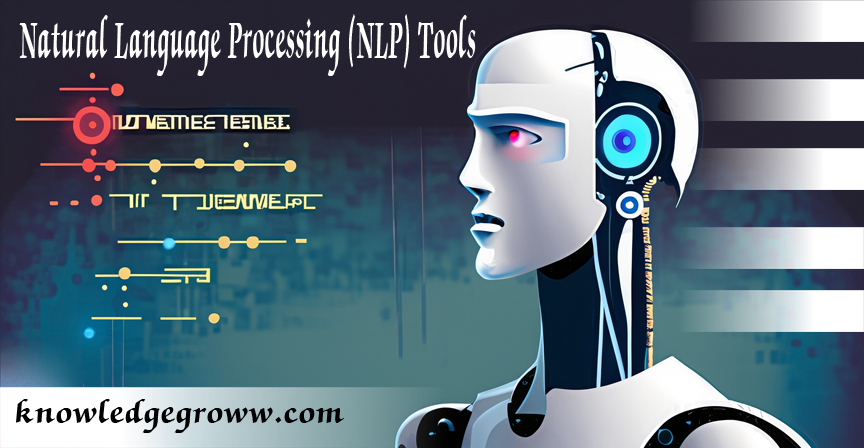
3. Computer Vision Tools
Computer vision tools possess a captivating prowess, endowing machines with the ability to perceive and unravel the mysteries concealed within visual data. Like sorcerers of the digital realm, these tools grant our mechanical counterparts the gift of sight, allowing them to comprehend the intricate language of images and videos. With an enchanting blend of algorithms and wizardry, they unlock the secrets hidden within pixels, breathing life into the pixels that dance upon our screens. Through their powers, machines become magicians, conjuring meaning from the visual tapestry that surrounds us, unraveling the enigmas that lie beyond the human eye. These tools find applications in object recognition, image classification, facial recognition, and autonomous vehicles. Leading computer vision tools include OpenCV, TensorFlow, and PyTorch.
4. Recommendation Systems
Recommendation systems use AI algorithms to suggest products, services, or content based on user preferences and behavior. These tools enhance user experience and drive personalized recommendations. Popular examples of recommendation systems include Netflix’s movie recommendations and Amazon’s product suggestions.
5. Predictive Analytics Tools
Predictive analytics tools utilize AI algorithms to analyze historical data and make predictions about future outcomes. These tools help businesses make data-driven decisions, identify patterns, and forecast trends. Leading predictive analytics tools include IBM Watson Analytics, RapidMiner, and Tableau.
6. Virtual Assistants
Virtual assistants, also known as chatbots, are AI-powered tools that interact with users through natural language conversations. They can perform tasks, provide information, and assist with various activities. Prominent virtual assistants include Apple’s Siri, Amazon’s Alexa, and Google Assistant.

7. Speech Recognition Tools
Speech recognition tools convert spoken language into written text, enabling hands-free communication and transcription services. These tools are widely used in voice-controlled systems, transcription software, and voice assistants. Well-known speech recognition tools include Dragon NaturallySpeaking, Google Speech-to-Text, and Microsoft Azure Speech Services.
8. Robotics and Automation
AI-driven robotics and automation technologies are revolutionizing industries by improving efficiency, precision, and safety. Robots equipped with AI can perform complex tasks, work alongside humans, and automate repetitive processes. Examples include industrial robots, surgical robots, and autonomous drones.
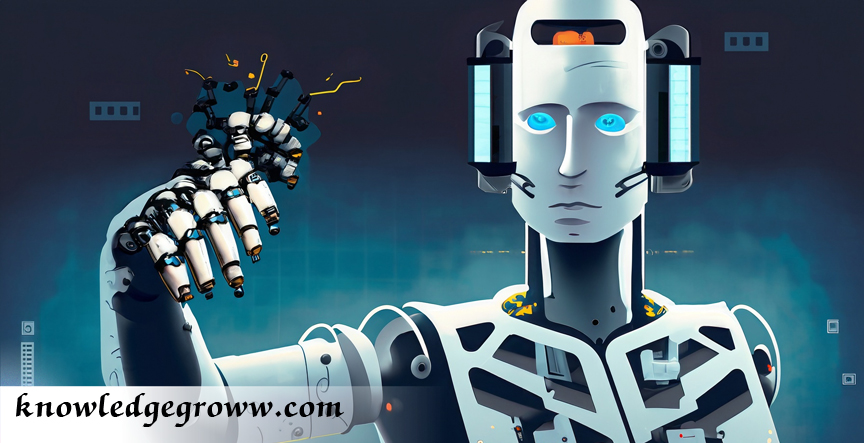
9. AI in Healthcare
AI has immense potential in healthcare, ranging from diagnosis and treatment to drug discovery and patient care. AI tools can analyze medical data, assist in medical imaging, predict diseases, and support telemedicine. They hold the promise of improving accuracy and efficiency in healthcare delivery.
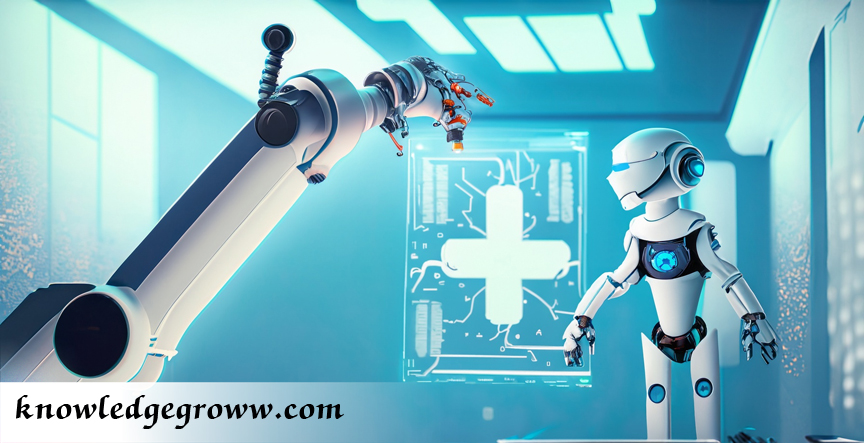
10. AI in Finance
AI is transforming the finance industry by automating processes, detecting fraud, and making investment predictions. AI tools can analyze vast amounts of financial data, assess risks, and optimize investment strategies. They are also used for algorithmic trading and personalized financial advice.
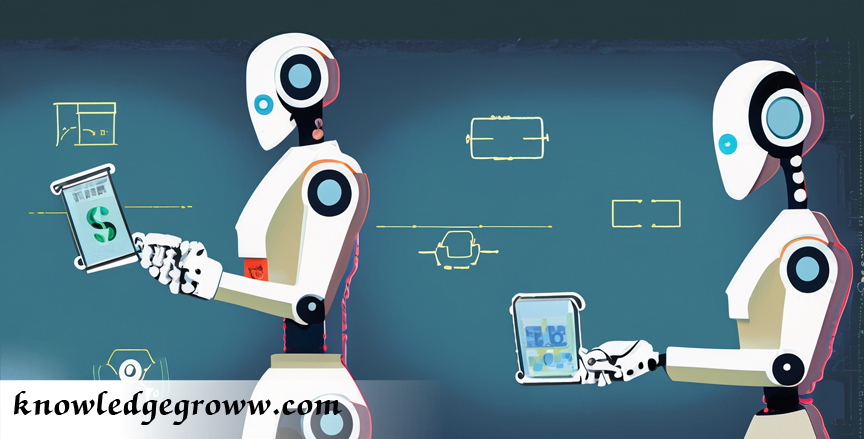
11. AI in Marketing
AI tools are revolutionizing marketing by enhancing customer targeting, personalization, and campaign optimization. They can analyze customer behavior, predict buying patterns, and automate marketing processes. AI-powered chatbots and recommendation engines are becoming common in marketing strategies.
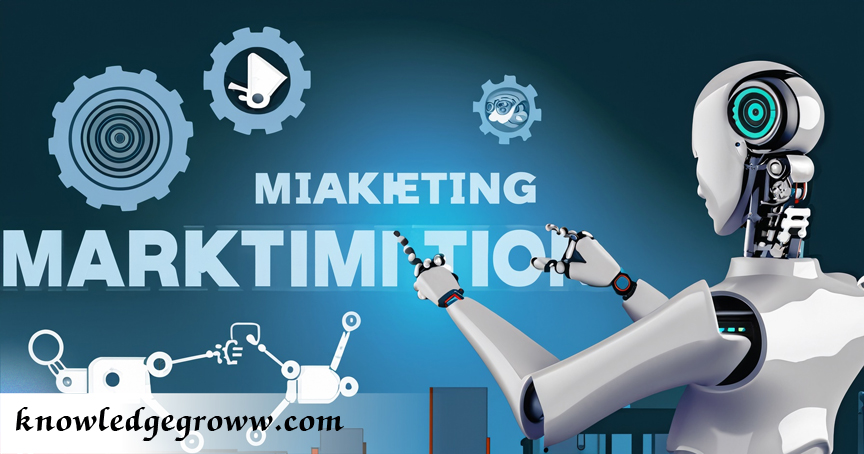
12. AI in Education
AI is reshaping education by enabling personalized learning, intelligent tutoring systems, and automated grading. AI tools can adapt to individual learning styles, provide real-time feedback, and offer personalized educational content. They have the potential to revolutionize traditional classrooms.

13. AI in Manufacturing
AI is driving automation and efficiency in manufacturing processes. AI tools enable predictive maintenance, quality control, supply chain optimization, and autonomous robots in manufacturing environments. They streamline operations and improve productivity.
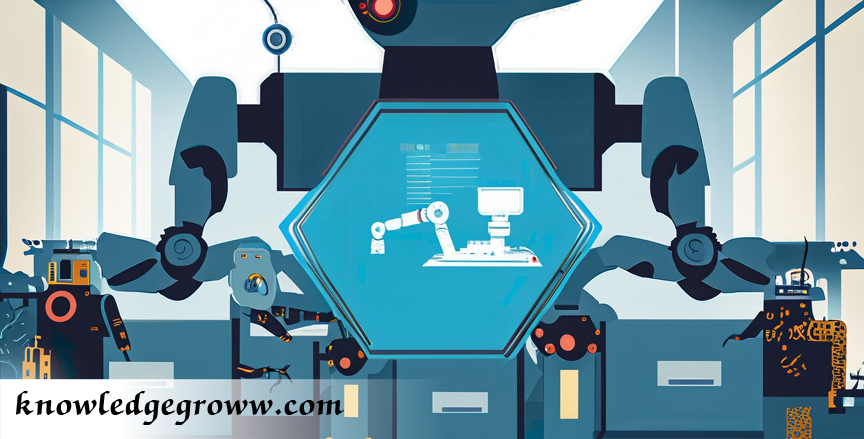
14. Ethical Considerations in AI
As the realm of AI expands its boundaries, the fabric of ethics weaves itself intricately into its very core. With each stride forward, the weight of responsibility and moral contemplation grows heavier, demanding our utmost attention. The rise of AI heralds a new era, where the choices we make in its development and implementation hold the power to shape our collective future. It is a call to our humanity, a reminder that as we unveil the capabilities of artificial intelligence, we must also navigate the labyrinth of ethical dilemmas that lay before us. For in this vast landscape of technological progress, the compass of conscience must guide our path. Transparency, accountability, and fairness in AI systems are important to ensure unbiased outcomes and protect privacy. Striking the right balance between innovation and ethical use of AI is a critical challenge.
Here is an updated list of Top AI tools
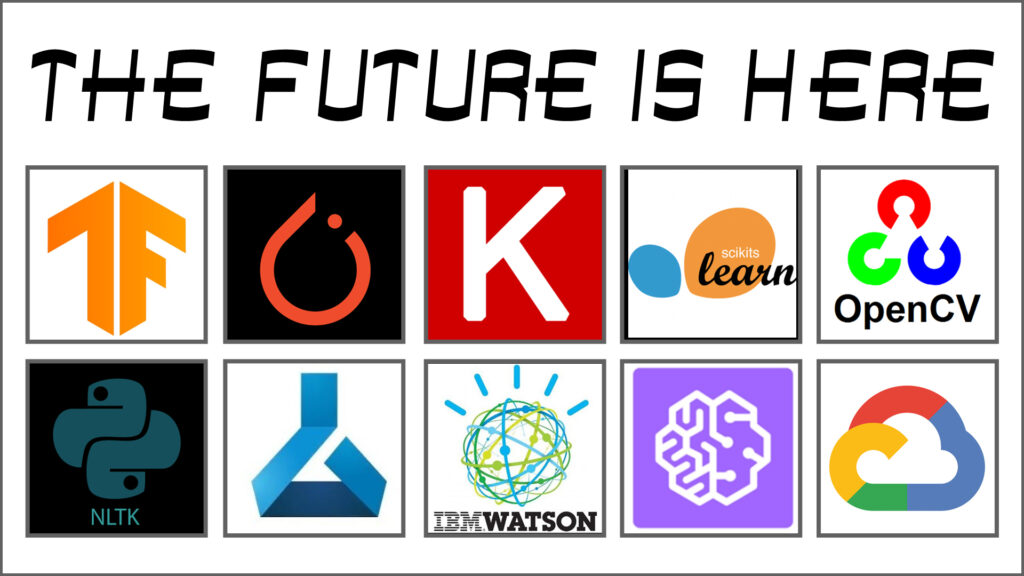
1. TensorFlow: An open-source machine learning framework developed by Google, TensorFlow is widely used for building and deploying various types of AI models, particularly deep learning models. It offers a comprehensive ecosystem with tools, libraries, and resources for tasks like image recognition, natural language processing, and more.
2. PyTorch: PyTorch is another popular open-source deep learning library known for its dynamic computational graph. It provides a flexible and intuitive interface for building neural networks and is widely used in research and industry. PyTorch is highly regarded for its ease of use and debugging capabilities.
3. Keras: Keras is a high-level neural networks API written in Python. It acts as a user-friendly interface to build and train deep learning models on top of other frameworks such as TensorFlow and Theano. Keras simplifies the process of working with deep learning models, making it accessible to beginners while still being powerful for advanced users.
4. scikit-learn: scikit-learn is a powerful and user-friendly Python library for machine learning. It offers a wide range of algorithms and tools for tasks such as classification, regression, clustering, and dimensionality reduction. scikit-learn is a popular choice among data scientists due to its simplicity and effectiveness.
5. OpenCV: OpenCV (Open Source Computer Vision Library) is a widely-used open-source computer vision library. It offers an extensive collection of algorithms and tools for tasks like image and video processing, object detection, face recognition, and more. OpenCV is primarily written in C++, but it also provides Python bindings for ease of use.
6. Natural Language Toolkit (NLTK): NLTK is a Python library for natural language processing (NLP). It provides a wide range of tools and resources for tasks like tokenization, stemming, tagging, parsing, and semantic reasoning. Natural Language Toolkit is widely used in academia and industry for NLP research and development.
7. Microsoft Azure Machine Learning: Azure Machine Learning is a cloud-based service provided by Microsoft. In its abundant embrace, it presents an all-encompassing array of tools and services, guiding us in crafting, refining, and unleashing machine learning models on a grand scale. It supports various AI frameworks and provides capabilities for automated machine learning, model deployment, and monitoring.
8. IBM Watson: IBM Watson is a suite of AI tools and services offered by IBM. It includes a range of AI capabilities such as natural language processing, computer vision, speech recognition, and more. IBM Watson provides APIs and pre-built models that enable developers to integrate AI functionalities into their applications.
9. Amazon SageMaker: SageMaker is a fully managed machine learning service provided by Amazon Web Services (AWS). It offers a complete set of tools for building, training, and deploying machine learning models. SageMaker supports popular frameworks like TensorFlow, PyTorch, and scikit-learn and provides capabilities for automated model training and deployment.
10. Google Cloud AI Platform: The Google Cloud AI Platform is a comprehensive suite of AI tools and services offered by Google Cloud. It provides a wide range of capabilities for building, training, and deploying AI models, including pre-trained models and AutoML for automated machine learning. The AI Platform supports TensorFlow, PyTorch, and other popular frameworks.
These are just a few examples of the top AI tools available today. The field of AI is continuously evolving, and new tools and frameworks are being developed regularly.
15. Conclusion
As the horizon of tomorrow beckons, AI emerges as the vanguard of innovation, painting a tapestry of limitless possibilities and forging a path into the extraordinary. The top AI tools discussed in this article are revolutionizing industries such as healthcare, finance, marketing, education, and manufacturing. As AI continues to evolve, it presents new opportunities and challenges that require careful consideration.
FAQs
- What are some popular NLP tools?
- Some popular NLP tools include Google’s BERT, OpenAI’s GPT-3, and NLTK (Natural Language Toolkit).
- How are recommendation systems useful?
- Recommendation systems provide personalized suggestions based on user preferences, enhancing user experience and driving engagement.
- What is the role of AI in healthcare?
- AI in healthcare enables improved diagnosis, treatment, drug discovery, and patient care through data analysis and automation.
- How does AI impact the finance industry?
- AI automates processes, detects fraud, makes investment predictions, and optimizes financial strategies, among other applications in finance.
- What are some applications of AI in manufacturing?
- AI is used in manufacturing for predictive maintenance, quality control, supply chain optimization, and the integration of autonomous robots.
In conclusion, the future is being shaped by AI, and being aware of the top AI tools is essential in navigating the technological advancements of today’s world. From NLP and computer vision tools to virtual assistants and robotics, AI is revolutionizing various sectors and opening up new possibilities. However, it is important to consider ethical considerations and ensure responsible and transparent use of AI for the benefit of society.

